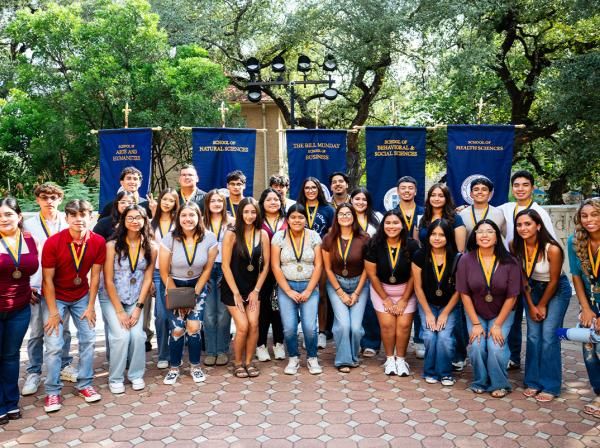How to Find Good Information about Paying for College
Preparing for college brings up questions: What does “net price” mean? What’s the difference between a subsidized and unsubsidized loan? Where can I find more scholarships?
When you need answers about money, you want sources you can trust. Your financial aid advisor at St. Edward’s is a good person to ask. Once you apply to attend St. Edward’s, you’re assigned an advisor who can help you understand your financial options and make sure you’re comparing “apples to apples” when you consider aid offers from different schools.
If you’re doing research on your own, here are four reputable sources we recommend:
For Important Stats and College Comparisons
The Department of Education has several websites to help you learn about financial aid and compare colleges on your short list. The College Navigator lets you search for schools by location, academic program and size. The College Scorecard helps you find quick stats like a school’s average cost and graduation rate, plus it explains exactly what a term like “graduation rate” means.
For a Start-to-Finish Explanation of the Financial Aid Process
The College Board — the organization that administers the SAT — is a reputable organization that offers lots of information for families planning for college. Its “Big Future” website explains the different types of financial aid, lets you get an estimate of your family’s EFC (Expected Family Contribution), and offers tips for completing the FAFSA. If you're an international student, learn about options to assist in financing educational costs.
For Finding National Scholarships
Fastweb will help you do a custom search for scholarships that fit your background, major, interests and special talents. Of course, you still have to apply for these awards once you’ve found them. Pick the scholarships that best fit your profile and invest the time to submit a strong application, which might involve writing another essay or reformatting your resume. A little more effort now could result in a few thousand dollars to help cover your expenses next year.
Fastweb, like all legitimate scholarship search sites, is free. If a site asks you to pay to apply for a scholarship or get a list of scholarships, it’s probably a scam.
For Finding Local Scholarships
Fastweb will help you find national scholarships, like those sponsored by major companies. But be sure to check with your high school counselor about local opportunities: scholarships awarded by your high school, local companies and civic groups like the Rotary Club. Applying for these awards is an especially good use of your time because you’re not competing against students from across the country.
Calculating the Cost
Deciphering the real cost of college can be complicated, but it doesn't have to be. It starts by understanding what you'll pay after you're awarded scholarships and grants.
Join the thousands of others who have tried our Net Price Calculator — 5 minutes is all it takes to estimate what you'll pay.
Hint: Make sure you have School Rank, GPA and Current Tax Information available before you start!


